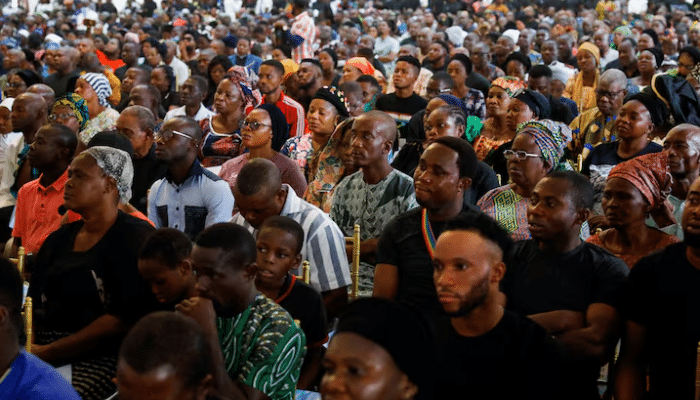
Three years after a horrifying attack on worshippers at St. Francis Catholic Church in Owo, Ondo State, Nigerian federal authorities have arraigned five men suspected of masterminding the assault. The suspects appeared before a Federal High Court in Abuja on Monday, facing terrorism-related charges under Nigeria’s national security laws.
The incident, which occurred on June 5, 2022, claimed the lives of more than 50 worshippers and left over 100 injured, marking one of the deadliest attacks on a religious site in Nigeria’s history.
The Accused: Names and Background
The suspects—Idris Omeiza, Al Qasim Idris, Jamiu Abdulmalik, Abdulhaleem Idris, and Momoh Otuho Abubakar—have all been charged under Nigeria’s Terrorism Prevention Act. Court documents allege that the group has ties to the Al Shabaab terrorist organization, which is primarily active in East Africa.
While Al Shabaab has not claimed responsibility for the Owo attack, the prosecution asserts that the suspects had been working with the group since 2021, planning and executing violent acts across Nigeria.
Arraignment and Legal Proceedings
The arraignment took place in a secured courtroom under the watch of the Department of State Services (DSS). All five suspects pleaded not guilty to the terrorism charges.
Justice Emeka Nwite, presiding over the case, adjourned the proceedings to August 19, 2025, when the trial will officially begin. The defendants will remain in DSS custody until that date.
Court Filings Reveal Broader Plot
According to court filings submitted by the prosecution:
- The suspects had allegedly joined Al Shabaab in 2021.
- They were linked to multiple plots targeting a public school and a mosque located near the Owo church.
- The group is believed to have planned these attacks as part of a coordinated effort to destabilize communities in Nigeria’s southwest.
Notably, no terrorist organization has claimed responsibility for the Owo massacre, creating speculation about whether the suspects acted independently or under ideological guidance.
Trial Seen as Test of Nigeria’s Counterterrorism Capacity
Legal experts and security analysts say this case could become a critical benchmark for Nigeria’s judicial response to terrorism. Nigeria has long struggled with complex terrorism cases involving groups like Boko Haram and ISWAP (Islamic State West Africa Province), with many cases stalling due to lack of evidence or security concerns.
“This trial will test whether the Nigerian judiciary can successfully prosecute high-profile terrorism cases without external pressure or political interference,” says Dr. Bisi Akande, a security analyst based in Lagos.
Victims Still Await Justice Three Years On
The memory of the attack continues to haunt the town of Owo. Survivors and families of victims have repeatedly called for justice, with many criticizing the delay in arrests and court proceedings. A mass memorial service held in 2023 reminded the nation of the tragedy’s impact on local families and the broader Christian community in Nigeria.
No Claims by Al Shabaab or ISWAP
While early reports speculated that the Islamic State West Africa Province (ISWAP) might be responsible, the group has never officially claimed the Owo attack. Similarly, Al Shabaab, which operates primarily in Somalia and Kenya, has no known direct operational base in Nigeria, raising further questions about the origin of the suspects’ alleged affiliations.
Security agencies, however, maintain that foreign extremist ideologies are increasingly influencing local terror cells, even without direct foreign command structures.
As Nigeria grapples with mounting insecurity in various regions, the Owo church massacre trial will serve as a major indicator of how seriously the government can respond to terrorism through the rule of law. Justice for the victims—both those who died and those who survived—now depends on a fair, transparent, and effective judicial process.
